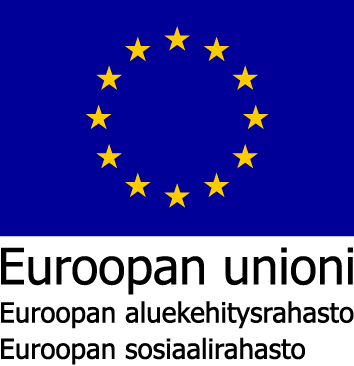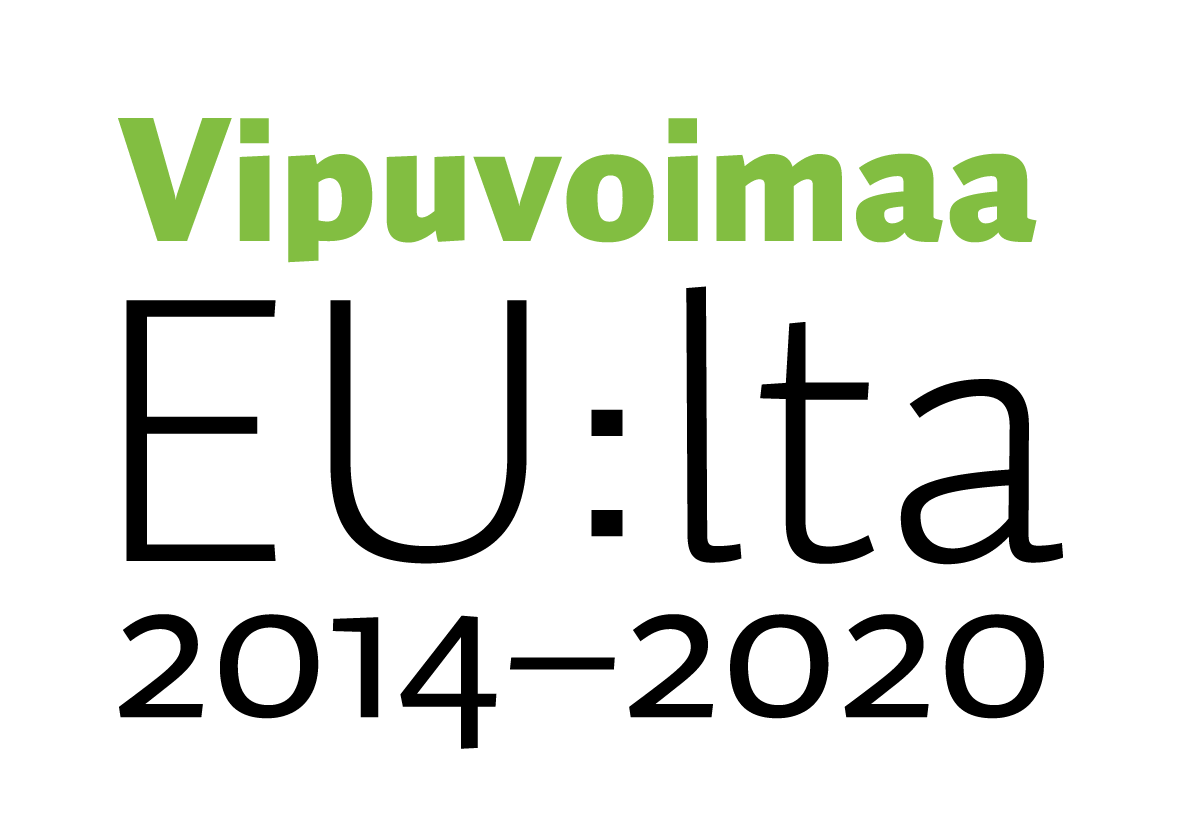

 |
 |
Hankekoodi: S21591
Hankkeen nimi: LUONNOLLISESTI – valmennusmalli tuo Green Care -menetelmät osaksi sosiaalista kuntoutusta
Toimintalinja: 5. Sosiaalinen osallisuus ja köyhyyden torjunta
Erityistavoite: 10.1. Työelämän ulkopuolella olevien työ- ja toimintakyvyn parantaminen
Suunnitelman mukainen toteutusaika: Alkaa 1.2.2019 ja päättyy 31.12.2021
Toiminnan tila: Toiminta päättynyt
Vastuuviranomainen: Pohjois-Pohjanmaan elinkeino-, liikenne- ja ympäristökeskus
Hakijan virallinen nimi: KSAK Oy
Organisaatiotyyppi: Ammatillinen oppilaitos
Y-tunnus: 0832600-5
Jakeluosoite: PL 13
Puhelinnumero: 040 860 8949
Postinumero: 93601
Postitoimipaikka: Kuusamo
WWW-osoite: http://www.ksak.fi
Hankkeen yhteyshenkilön nimi: Auli Posio
Yhteyshenkilön asema hakijaorganisaatiossa: hankepäällikkö
Yhteyshenkilön sähköpostisoite: auli.posio(at)ksak.fi
Yhteyshenkilön puhelinnumero: 040 531 6426
Hakijoiden lukumäärä tai tuen siirto -menettely:
Hankkeen tavoitteena on yhdistää sosiaalisen kuntoutuksen ja Green Care –kriteerien lähtökohdat ja tuoda Rovaniemen ja Kuusamon sosiaalisen kuntoutuksen palveluiden rinnalle tai / ja vaihtoehdoksi osallisuuden, toiminta- ja työkyvyn lisäämiseksi luontolähtöisiä kuntoutuspalveluita ja menetelmiä. Päätavoitteena on vahvistaa syrjäytymisvaarassa olevien, pitkäaikaistyöttömien ja päihdekuntoutujien sekä moniongelmaisten perheiden ja eri kulttuurivähemmistöjen perheiden työ- ja toimintakykyä sekä osallisuutta luontolähtöisin menetelmin.
Hankkeen hallinnoijana ja koordinoijana toimii KSAK Oy ja osatoteuttajina Lapin ammattikorkeakoulu Oy ja Ksakki ry. Hanke toteutetaan yhteishankkeena, jotta luontoperustaiset Green Care –menetelmät saataisiin liitettyä laajasti sosiaaliseen kuntoutukseen huomioiden eri alueiden ja organisaatioiden painotukset.
KSAK Oy tuottaa ja vie kentälle lisää tietoa Green Care -toiminnasta, rakentaa verkostoja ja luo toimintamalleja yhdessä osatoteuttajien kanssa, sekä on osaltaan mukana valmennuspiloteissa ja hankkeen sekä tulosten arvioinnissa.
Lapin ammattikorkeakoulun päävastuu on valmennusmallin suunnittelussa, pilotoinnissa ja muotoilussa. Pilotointi toteutetaan Rovaniemen, Kuusamon, Taivalkosken ja Pudasjärven alueilla sosiaalista kuntoutusta työtä tekevän henkilöstön tai palveluista kiinnostuneiden kanssa. Valmennukseen osallistujat soveltavat / testaavat oppimaansa asiakkailleen oman työn ohessa tai pilotointina.
Ksakki ry:n päävastuu on luontoon suuntautuvassa asiakastyössä. Tämän lisäksi he osallistuvat valmennusmallin kehittämiseen mm. osallistumalla Lapin ammattikorkeakoulun pilottikoulutukseen. Yhdistys pilotoi ja edelleen kehittää Green Care -menetelmiä erilaisissa luontoympäristöissä hyödyntäen valittuja menetelmiä osallistujien tarpeiden mukaisesti yhteistyössä hankkeen toimijoiden ja palveluntuottajien kanssa. Asiakastyössä hyödynnetään osaksi jo olemassa olevia asiakasryhmiä, erilaisia luontoympäristöjä sekä menetelmiä osallistujien tarpeiden mukaisesti yhteistyössä hankkeen toimijoiden ja palvelujen tuottajien kanssa.
Hankkeen tuloksena toimintaan osallistuneiden asiakkaiden toimintakyky ja osallisuuden kokemus vahvistuvat ja he etenevät koulutus- ja työllisyyspoluillaan tai saavat mielekästä tekemistä arkeensa. Hankkeessa syntyneet Green Care -toimintamallit ja valmennusmalli otetaan käyttöön hankkeen toteuttajaorganisaatoissa ja muissa työelämän ulkopuolella oleville palveluja tarjoavien toimintayksiköissä soveltuvin osin.
Hankkeessa saadaan monipuolista tietoa luontoon tukeutuvan kuntoutustoiminnan soveltuvuudesta osallisuuden ja toimintakyvyn vahvistamiseen. Toiminta-alueella tietämys Green Care –toiminnasta lisääntyy ja on rakennettu verkosto toiminnan ympärille. Tieto ja kokemukset tulevat kaikkien kuntoutus- ja luontopalveluja tarjoavien toimijoiden ja muiden kiinnostuneiden käytäntöön ja on kehitettävissä edelleen.
Hankkeen määrällisenä tuloksena 90 asiakasta vahvistaa omaa toimintakykyä ja osallisuutta luontolähtöisin menetelmin. Lisäksi yhteensä noin 80 henkilöä kehittää palveluitaan ja/tai parantaa osaamistaan Green Care tyyppisessä palvelutoiminnassa.
Hankkeen pitkän tähtäimen tuloksena saadaan tuotua sosiaalisen kuntoutuksen palveluiden rinnalle tai / ja vaihtoehdoksi osallisuuden, toiminta- ja työkyvyn lisäämiseksi luontolähtöisiä kuntoutuspalveluita ja menetelmiä sekä osaavaa henkilöstöä.
Asiakaskohderyhmänä ovat eri ikäiset kuntoutujat, joille tarjotaan vaihtoehtoista sosiaalista osallisuutta tukevaa kuntoutuspalvelua aikaisempien palvelujen rinnalle. Heille ei välttämättä ole tarjolla tilanteeseen sopivaa ja/tai palvelujärjestelmässä saatavilla olevaa sosiaalista osallisuutta tukevaa kuntoutuspalvelua. Kohderyhmään kuuluvat erilaisissa tuen tarpeissa ja/tai syrjäytymisvaarassa olevia henkilöitä mm. mielenterveys- ja päihdekuntoutujat, pitkäaikaistyöttömät, maahanmuuttajat, romanit. Yhtenä kohderyhmänä ovat myös moniongelmaiset perheet. Perheissä varsinainen asiakas on aikuinen vanhempi tai vanhemmat, mutta lapset otetaan mukaan toimintaan.
Osaamisen kehittämisen kohderyhmänä ovat sosiaalisen kuntoutuksen palveluja tarjoavien toimintayksiköt ja niiden henkilöstö ja toiminnasta kiinnostuneet henkilöt sekä ostaja- ja päättäjätahot, jotka saavat lisää tietoa, osaamista, yhteistyömalleja ja -verkostoja sekä saavat hankkeessa sovellettuja toimintamalleja käyttöönsä. Lisäksi kohderyhmänä ovat luontoyrittäjät, luontomatkailuyrittäjät tai luontoyrittäjiksi aikovat, jotka saavat hankkeen myötä myös uutta tietoa, osaamista ja menetelmiä käyttöönsä sovellettavaksi.
Hankkeen kehittämistoiminnasta hyötyvät välillisesti muut alueen toimijat, jotka ovat kiinnostuneita kehittämään Green Care –palveluja sekä hankkeen toiminta-alueen ulkopuolella olevat kuntoutus- ja työllisyyspalveluiden toimijat. Koulutusorganisaatiot hyötyvät myös hankkeen toiminnasta uudenlaisen osaamisen ja valmennusmallin kehittymisen myötä.
Myönnetty EU- ja valtion rahoitus: 536 000
Toteutunut EU- ja valtion rahoitus: 485 744
Suunniteltu julkinen rahoitus yhteensä: 638 500
Toteutunut julkinen rahoitus yhteensä: 578 302
Maakunnat: Pohjois-Pohjanmaa, Lappi
Seutukunnat: Rovaniemen, Oulunkaaren, Koillismaan
Kunnat: Rovaniemi, Taivalkoski, Kuusamo, Pudasjärvi
Jakeluosoite:
Postinumero:
Postitoimipaikka:
Suunniteltu: 20
Toteutunut seurantatietojen mukaan: 21
Suunniteltu: 170
| Välitön | Välillinen | |
| Ekologinen kestävyys | ||
| Luonnonvarojen käytön kestävyys | 2 | 8 |
| Green Care -toiminnan keskeinen periaate on kestävä kehitys kaikella tavalla ja sitä pyritään noudattamaan hankkeen toiminnassa. | ||
| Ilmastonmuutoksen aiheuttamien riskien vähentäminen | 0 | 0 |
| Ei koske tätä hanketta. | ||
| Kasvillisuus, eliöt ja luonnon monimuotoisuus | 2 | 8 |
| Toiminnassa otetaan huomioon kasvien ja luonnon monimuotoisuus ja suojellaan niitä. Luonnon arvostus lisääntyy, kun osallistujien luontosuhde vahvistuu ja he oppivat toimimaan luonnossa. | ||
| Pinta- ja pohjavedet, maaperä sekä ilma (ja kasvihuonekaasujen väheneminen) | 0 | 0 |
| Ei koske tätä hanketta. | ||
| Natura 2000 -ohjelman kohteet | 0 | 6 |
| Koillismaalla sijaitsee Natura 2000 -ohjelma alueella ja hankkeessa voidaan hyödyntää sen kohteita esim. retkikohteena. | ||
| Taloudellinen kestävyys | ||
| Materiaalit ja jätteet | 2 | 6 |
| Toiminnassa suositellaan kierrätystä ja luonnonmateriaalien kestävää käyttöä. | ||
| Uusiutuvien energialähteiden käyttö | 0 | 0 |
| Ei koske tätä hanketta. | ||
| Paikallisen elinkeinorakenteen kestävä kehittäminen | 6 | 8 |
| Hankkeella tuetaan paikallisia elinkeinoja kuten matkailua, kalastusta, metsänhoitoa ja luonnontuotteiden keruutoimintaa. | ||
| Aineettomien tuotteiden ja palvelujen kehittäminen | 4 | 6 |
| Kehitetään aineettomia toimintamalleja luontoon tukeutuvassa kuntoutuksessa. | ||
| Liikkuminen ja logistiikka | 2 | 4 |
| Pitkien etäisyyksien vuoksi käytetään hanketoimijoiden keskinäisessä yhteydenpidossa osittain verkkopalavereita ja muita sähköisiä yhteyksiä. Toimintakohteisiin on liikuttava autolla. | ||
| Sosiaalinen ja kulttuurinen kestävyys sekä yhdenvertaisuus | ||
| Hyvinvoinnin edistäminen | 8 | 8 |
| Hankkeella edistetään osallistujien hyvinvointia ja osallisuutta järjestämällä kuntoutumisen ja osallisuuden kokemusten mahdollisuuksia. | ||
| Tasa-arvon edistäminen | 2 | 5 |
| Hankkeen aikana pyritään tasa-arvoista osallistumista ja huolehditaan, että toteuttamistavat ovat sellaisia, että ne edistävät sekä naisten että miesten osallistumista. Hankkeessa pyritään edistämään tasa-arvoa. | ||
| Yhteiskunnallinen ja kulttuurinen yhdenvertaisuus | 3 | 4 |
| Hanke lisää toiminta-alueellaan luontokulttuurin asemaa ja tukee niidenkin osallistujien luontosuhteen vahvistumista, joilla ei ole ollut aikaisemmin mahdollisuuksia päästä luontoon erityisesti. | ||
| Kulttuuriympäristö | 3 | 4 |
| Hankkeessa tutustutaan pohjoiseen luontoympäristöön ja vaalitaan perinteiseen pohjoiseen kulttuuriin kuuluvia luontotoimintoja kuten kalastus ja luonnontuotteiden keruu. | ||
| Ympäristöosaaminen | 4 | 7 |
| Osallistujien ympäristöosaaminen ja tietoisuus luontoympäristöstä lisääntyy aktiivisessa luontotoiminnassa. | ||
Hankkeella haettiin ratkaisua alueen tarpeeseen kehittää osallisuuden, työ- ja toimintakyvyn edistämiseksi luontoperustaisia kuntoutuspalveluita. Päätavoitteena oli vahvistaa syrjäytymisvaarassa olevien, pitkäaikaistyöttömien ja päihdekuntoutujien, moniongelmaisten perheiden ja eri kulttuurivähemmistöjen perheiden työ- ja toimintakykyä sekä osallisuutta luontoperustaisesti.
Hankkeen avulla on saatu Green Care -menetelmiä käyttöön, joka on nähtävissä niin osallisuuden, työ- ja toimintakyvyn vahvistumisena, henkilöstön työotteena kuin verkostojen ja tiedon lisääntymisenä. Alueella on paremmat mahdollisuudet toteuttaa sosiaalista kuntoutusta luontoperustaisesti. Myös hanketoteuttajien osaamisen ja verkostojen kehittyminen mahdollistaa jatkossa entistä laajemman tuen toimijoille.
Tavoitteeseen pääsemiseksi rakennettiin verkostoja eri tavoilla ja tasoilla sekä lisättiin Green Care -tietoa alueella. Green Care -info- ja verkostoitumistilaisuuksia järjestettiin yhteensä 12 ja erilaisia teemallisia työpajoja/webinaareja kahdeksan. Lisäksi suunniteltiin, käynnistettiin ja toteutettiin Luonto & luovuus sotessa pyöreän pöydän toiminta yhdessä TAIDA! -hankkeen kanssa. Monialainen keskustelufoorumi edisti luonto- ja taidelähtöisten menetelmien näkyvyyttä ja hyödyntämistä, jakoi tietoa, levitti hyviä käytänteitä ja rakensi verkostoa. Toiminta jatkuu hankkeen jälkeen. Ostajatahon keskusteluhetkissä käsiteltiin Green Care -toiminnan hyötyjä, menetelmiä ja jaettiin tietoa molemmin puolin. Tietoa jaettiin myös sosiaalisen median kanavissa. Hankkeen verkostotyötä on kuvattu osana Taide-, kulttuuri- ja luontolähtöinen osallisuusverkosto osallisuuden palasta.
Suunnitelman mukaisesti kehitettiin, pilotoitiin ja muotoiltiin Luonnollisesti-valmennusmalli sosiaalisen kuntoutuksen työntekijöille. Valmennuksessa lisättiin luontoperustaisten menetelmien osaamista ja niiden soveltamista ammatillisesti, vastuullisesti ja tavoitteellisesti asiakastyöhön. Osallistujat saivat valmiuksia toteuttaa Gren Care -menetelmillä toimintaa sosiaalisen kuntoutuksen kohderyhmille. Valmennus eteni prosessina, johon kuului kolme lähipäivää sekä oma Green Care -toteutus. Teemoina oli Sosiaalisen kuntoutuksen keskeistä sisältöä, Green Care -toimintamalli ja Oma tapa toteuttaa Green Care osana sosiaalista kuntoutusta. Ohjausta ja mentorointia oli tarjolla koko prosessin ajan. Kokonaisuus jäsentyi kolmeen näkökulmaan: teoreettinen sisältö, menetelmällinen osaaminen ja kehittämisosaaminen. Valmennusta kehitettiin syklisesti. Jokaisen kerran jälkeen toimivuutta arvioitiin asiakaspalautteiden ja valmentajien arvioinnin kautta. Valmennuksia toteutettiin 8 ja osallistujia oli 87 (tavoite 80). Hankkeessa luotua valmennusmallia ja sen hyviä kokemuksia on hyödynnetty Green Care -diplomikoulutuksen suunnittelussa.
Green Care -menetelmät otettiin käyttöön ja niiden avulla edistettiin sosiaalisen kuntoutuksen asiakkaiden ja perheiden osallisuutta sekä työ- ja toimintakykyä. Kolmen kuukauden kestoisia Voimavaroja luonnosta -ryhmiä toteutettiin 13 ja niihin osallistui 67 (tavoite 65) henkilöä. Perheryhmiä toteutettiin kolme ja lisäksi koronatilanteen vuoksi toteutettiin yksittäisten perheiden tapaamisia. Perheryhmien toimintaan osallistui 16 perhettä, 24 aikuista (tavoite 25) ja 33 lasta. Koronatilanteen vuoksi hankesuunnitelmaan lisättiin etävalmennuksen kehittäminen, mikä mahdollista toiminnan jatkumisen myös poikkeusoloissa. Ryhmien toimintaan kehitettiin 12 tapaamiskerran teemarunko, ryhmiä toteutettiin kaikkina vuodenaikoina ja erilaisia menetelmiä pilotoitiin. Saadun palautteen ja asiakkaiden arvion perusteella osallistujien osallisuus on lisääntynyt. Yleisesti luontotoiminnalta koettiin saaduksi virkistystä, piristystä ja vaihtelua arkeen. Myös työ- ja toimintakyvyssä havaittiin muutoksia, mutta ne eivät aina konkretisoituneet mittareihin. Jatkossa on edelleen pohdittava mittauksen eri mahdollisuuksia. Luontoperustaisella toiminnan saavutettiin se, mitä tavoiteltiin. Asiakkailta saatu palaute oli kokonaisuudessaan erittäin hyvää ja vastaavanlaisessa toimintaan halutaan osallistua myös jatkossa. Luotua toimintamallia on juurrutettu eri palveluihin jo hankkeen aikana. Laadittu materiaali on hyödynnettävissä eri toimijoilla myös jatkossa.